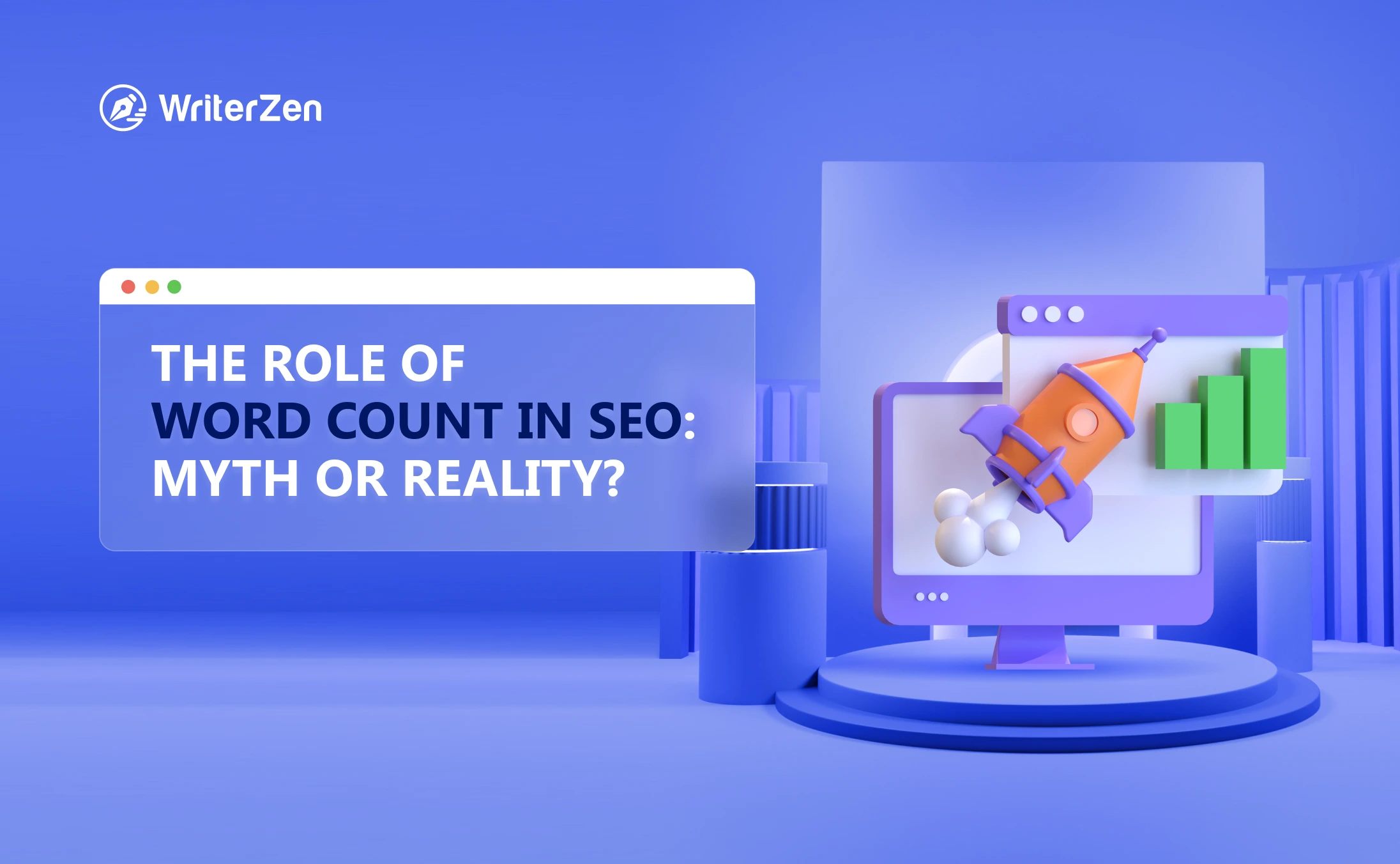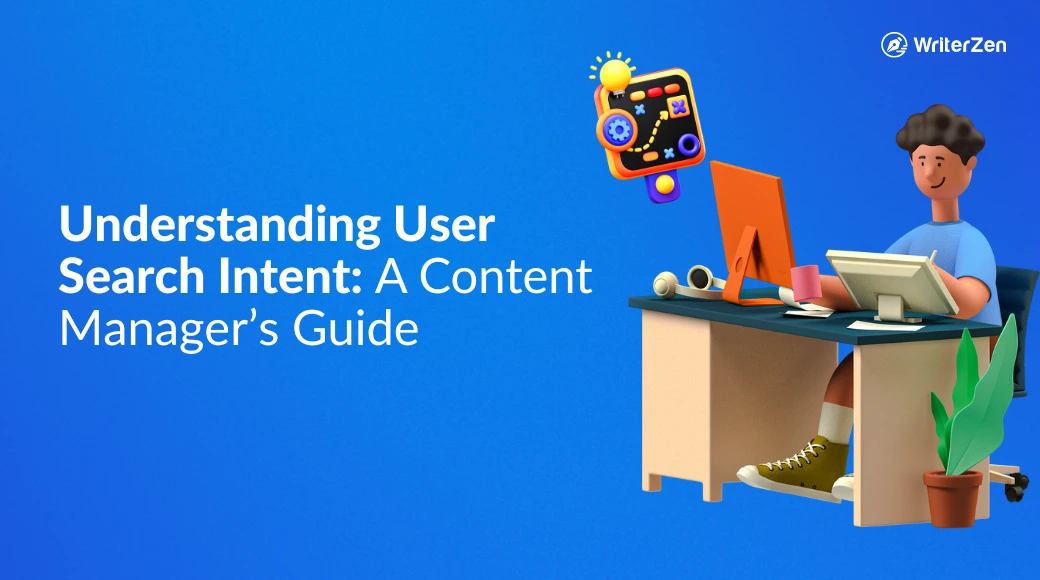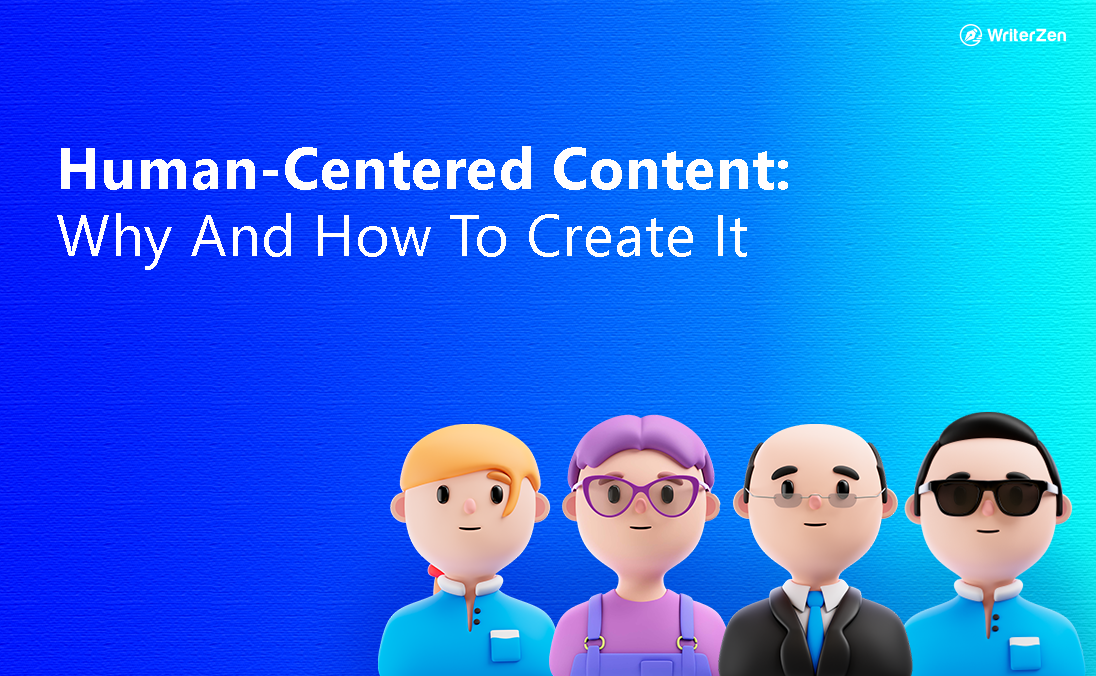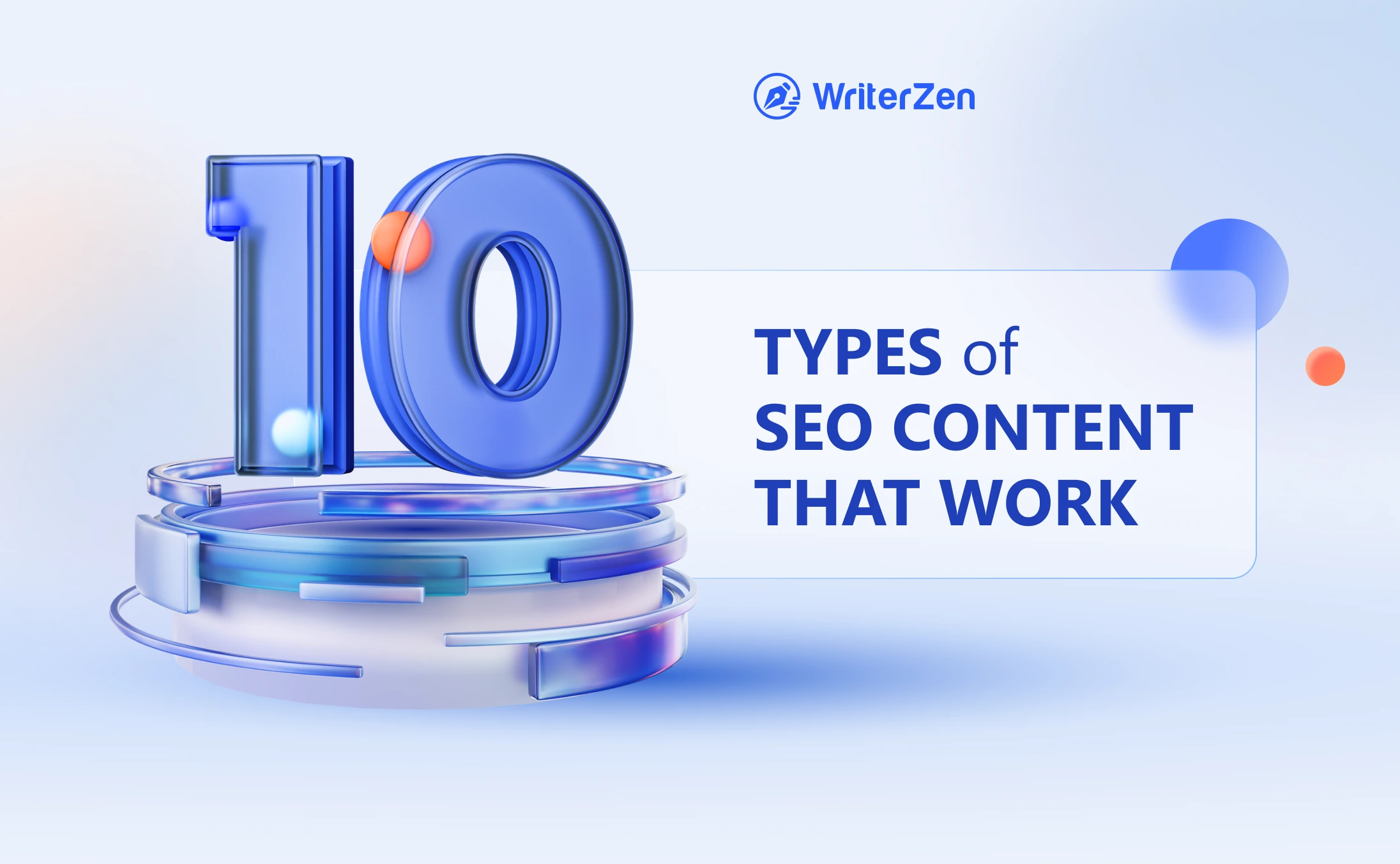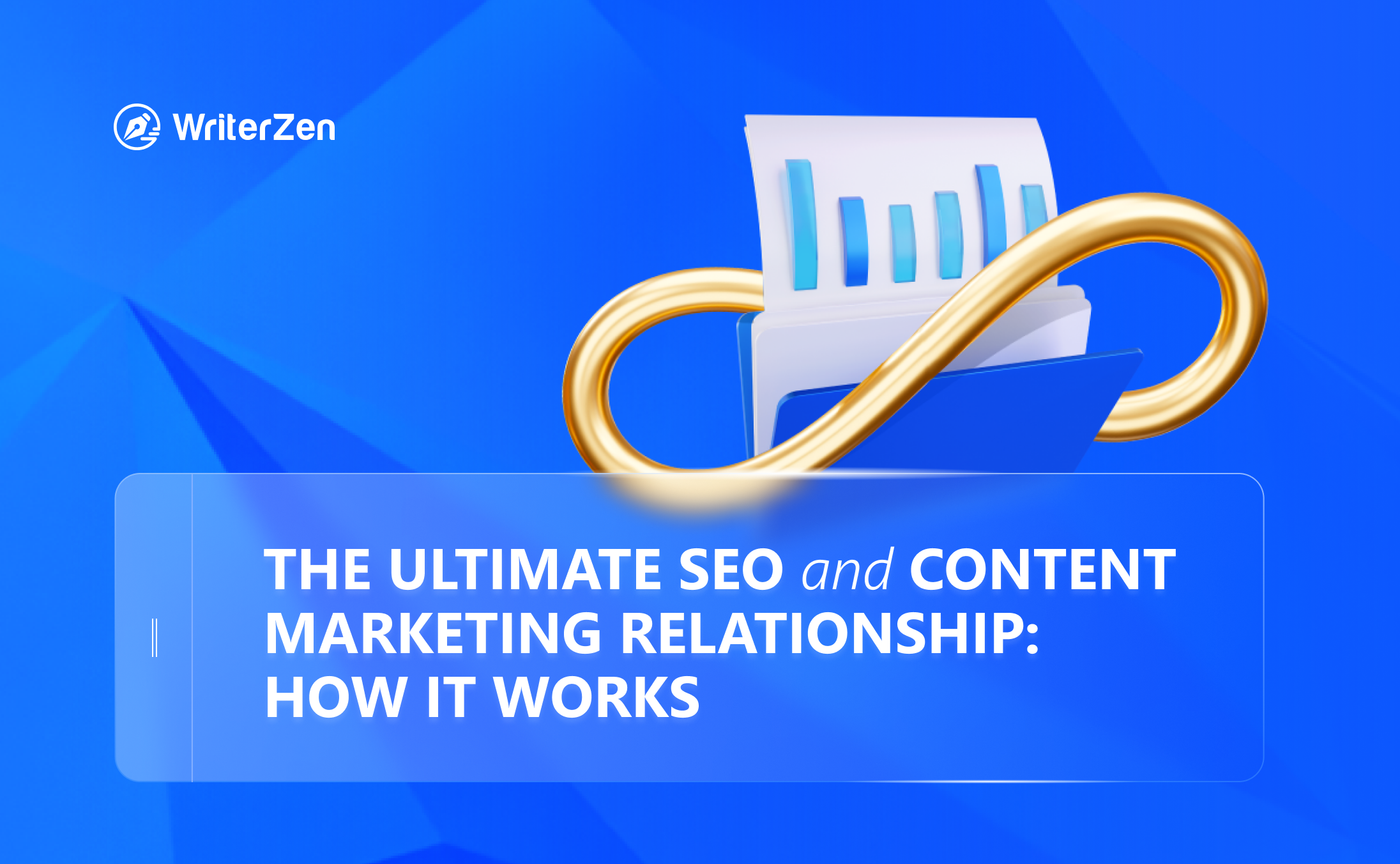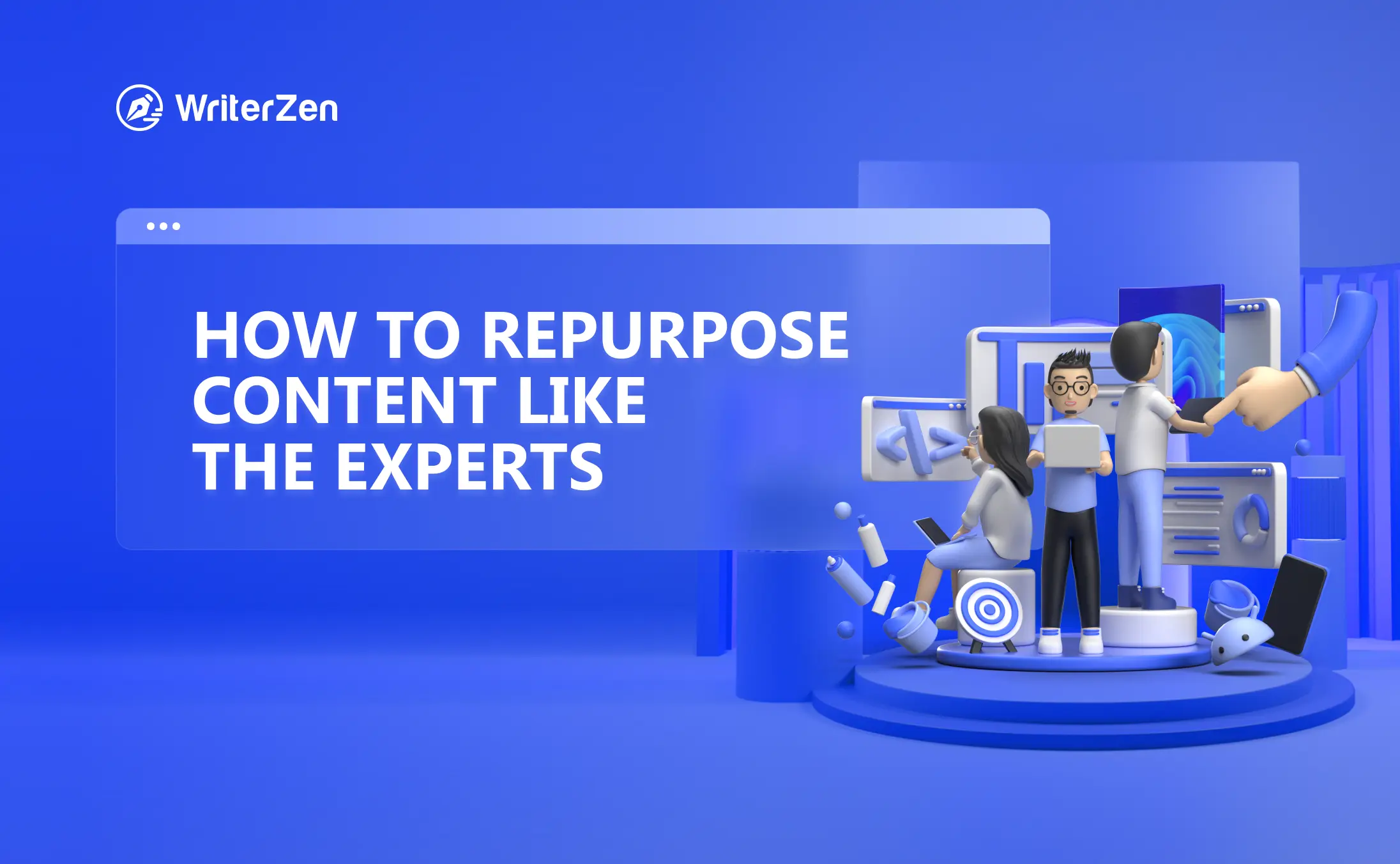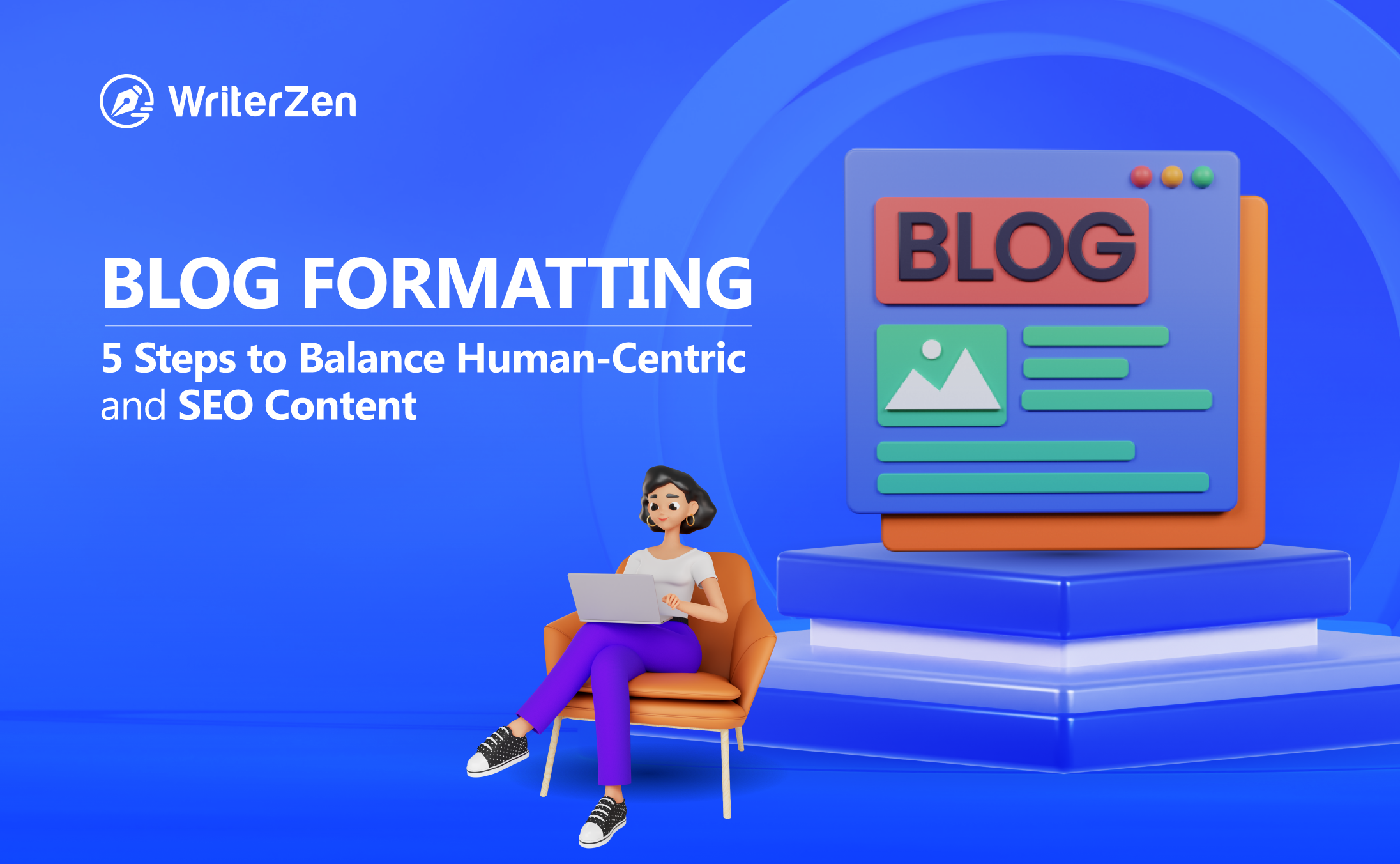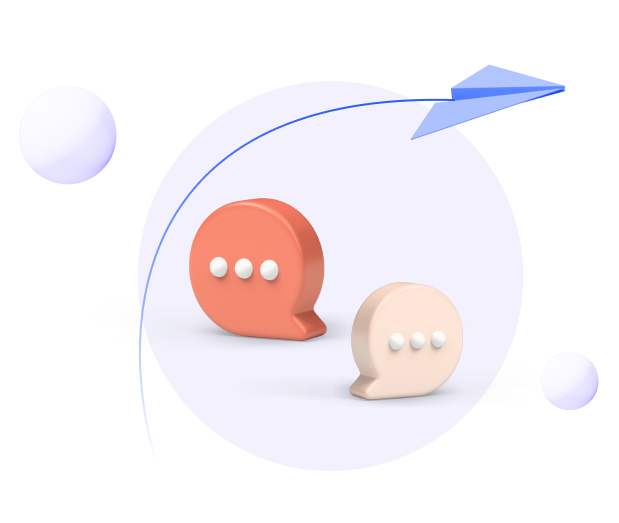If you've ever put pen to paper for a blog article, you've likely found yourself tangled in the debate about word count and its influence on SEO.
Does word count have a say in how well your content performs in search engine rankings? Should you prioritize brevity and clarity, or are you better off aiming for a specific word count to please the SEO gods? Essentially, how long should your web content take to win the SEO game?
The notion that word count serves as a gauge for content quality is misleading. Your ultimate goal shouldn't be to hit a specific number of words but to craft a detailed, compelling, and well-researched long-form article that naturally attracts readers and holds their attention.
The ideal word count for SEO is a moving target; some experts recommend as few as 300 words, while others argue that 2,000+ word long-form articles are ideal.
In this post, we'll debunk this myth and offer more nuanced advice on how to make your blog posts search engine-friendly.
Let’s dive in.
Does Article Word Count Affect SEO?
You may have also heard that Google has a soft spot for longer posts, allegedly ranking them higher than shorter pieces. However, this assumption is largely flawed.
The reality is, there's no one-size-fits-all answer for how long a piece of content should be, even though some experts might tell you it should be between 2,000 and 2,500 words. The "perfect length" idea doesn't really work, because what people are searching for online can vary a lot.
Even Google's expert, John Mueller, made it clear that simply adding more words to a page doesn't make it better in Google's eyes.
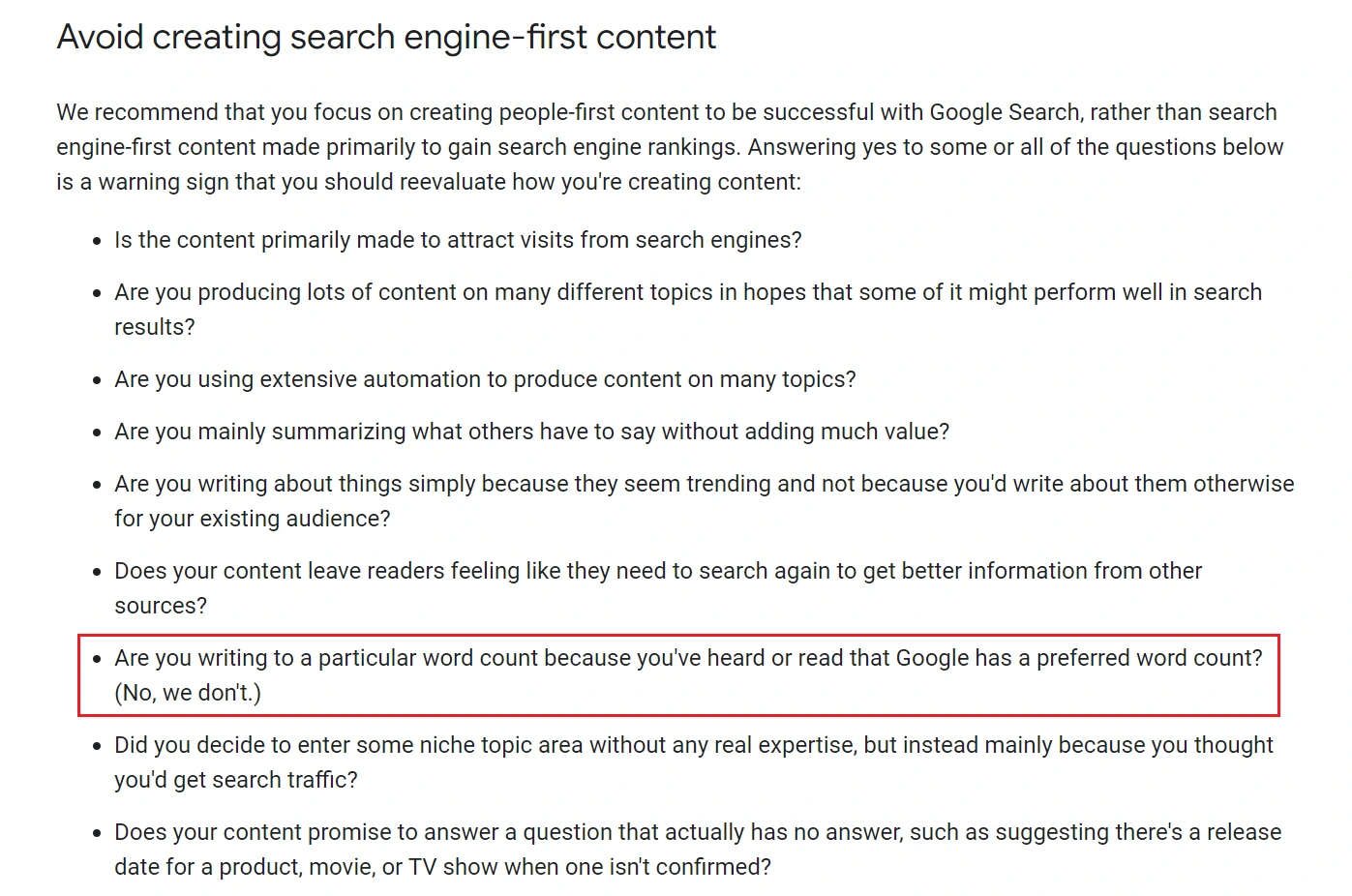
Source: Google
For some questions people type into a search engine, they just want quick, straightforward answers. A short and simple article would do the trick.
But for other questions, people might want a lot of detail, explanations, or background information. In those cases, longer, more detailed content is needed.
So, the ideal length for your content really depends on what someone is looking to find out when they land on your page.
Besides that, there are a lot of things that help decide where your content shows up when someone searches online. These things can include the words you use, pictures on your page, and special text that helps computers understand your images.
This mix of elements is known as your SEO strategy, or how you plan to be seen on search engines like Google.
But the question still remains…
Why Does Long-Form Content Tend to Rank Better Than Short-Form Content?
Is longer always better when it comes to writing articles or blog posts? Well, not exactly.
You might think that writing more words makes an article better, but that's not always the case. If you're just adding extra words or going around in circles to make your article longer, you'll probably annoy your readers.
And if your readers aren't happy, your article won't rank well on search engines like Google.
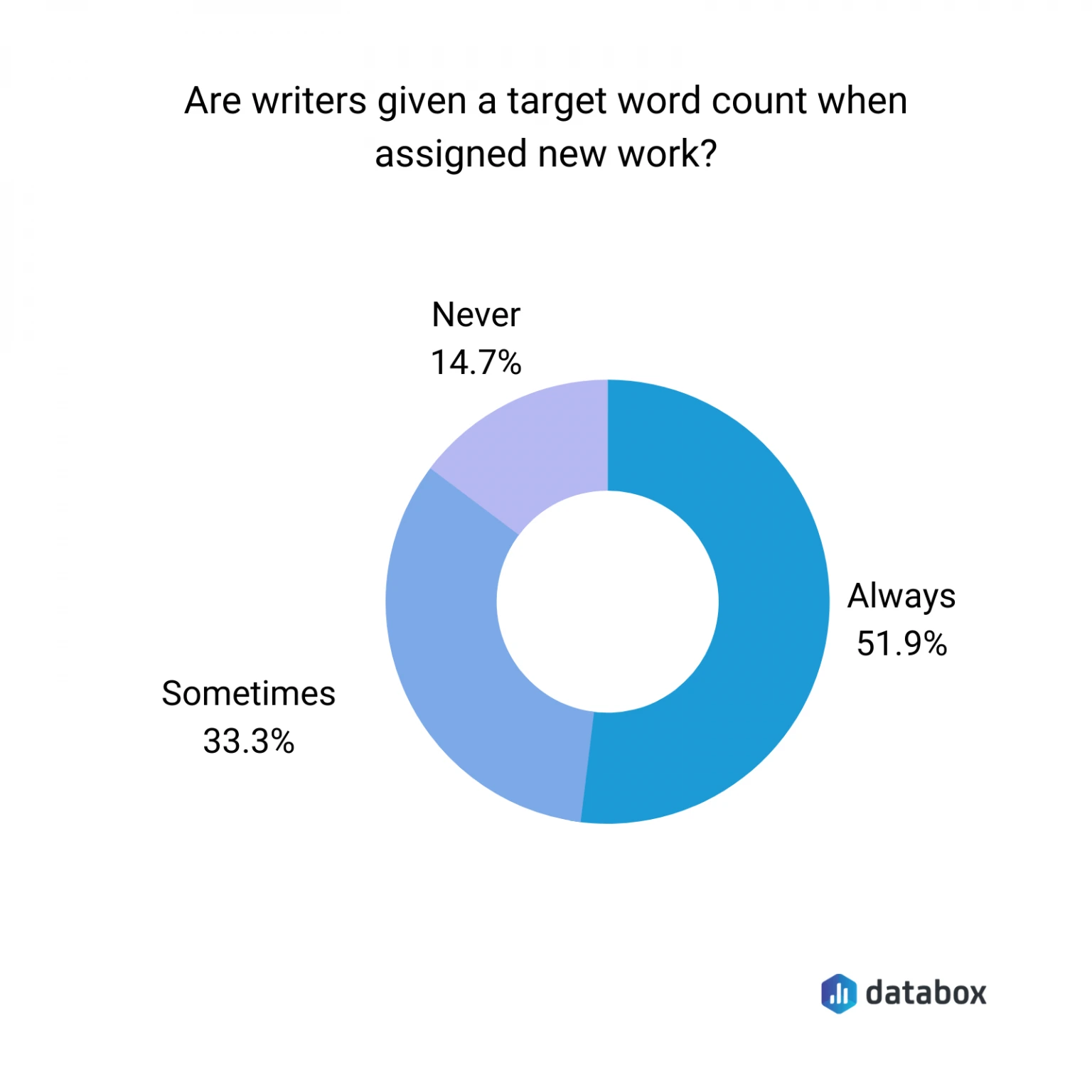
Source: Databox
So, what's the magic number for length?
The University of Chicago suggests most people can read about 250 words per minute. That means a 7-minute read would be around 1,750 words. But does that mean every blog post you write should stick to this word count? Not necessarily.
Here's the thing: Article word count isn't the only thing that matters. Long articles—those over 1,000 words—often rank higher in search results, but why?
Delving Deep
Long articles often dive deeper into a subject, offering more details than shorter ones. This makes them more helpful for people looking to understand something fully.
When you answer real questions that people are searching for, search engines like Google take notice. As a result, your in-depth article has a better chance of showing up at the top of search results, making it easier for more people to find and read it.
Attracting More Backlinks
Backlinks are like votes of confidence from other websites. Backlinks are like the gold stars of the internet; they really matter when Google decides how to rank websites.
Why? Well, they form the backbone of Google's original PageRank algorithm. Even Google itself says that backlinks are crucial when it comes to picking which pages are most useful to show users.
Longer Dwell Time
If people find your article engaging and full of good information, they'll spend more time reading it. The longer they stay on your page, the more valuable Google thinks your content is.
This extra time can also boost your article higher in search rankings - not only do you keep your readers happy, but you also make Google happy!
So, while bigger isn't always better, a well-crafted, detailed article can really pay off in the long run.
What Sets Your Blog Apart Beyond Just Length?
Search Intent
When you're creating content for your website, it's crucial to think about what your audience is looking for. Understanding the search intent will help you create content that your audience finds valuable.
Of course, you can look at what your competitors are doing, but your main focus should be on matching your content to the search intent of the keyword. Ask yourself, "What does my audience want? Do they want detailed explanations, or are they looking for quick answers?"
Knowing the search intent can guide you in making your content either long or short.
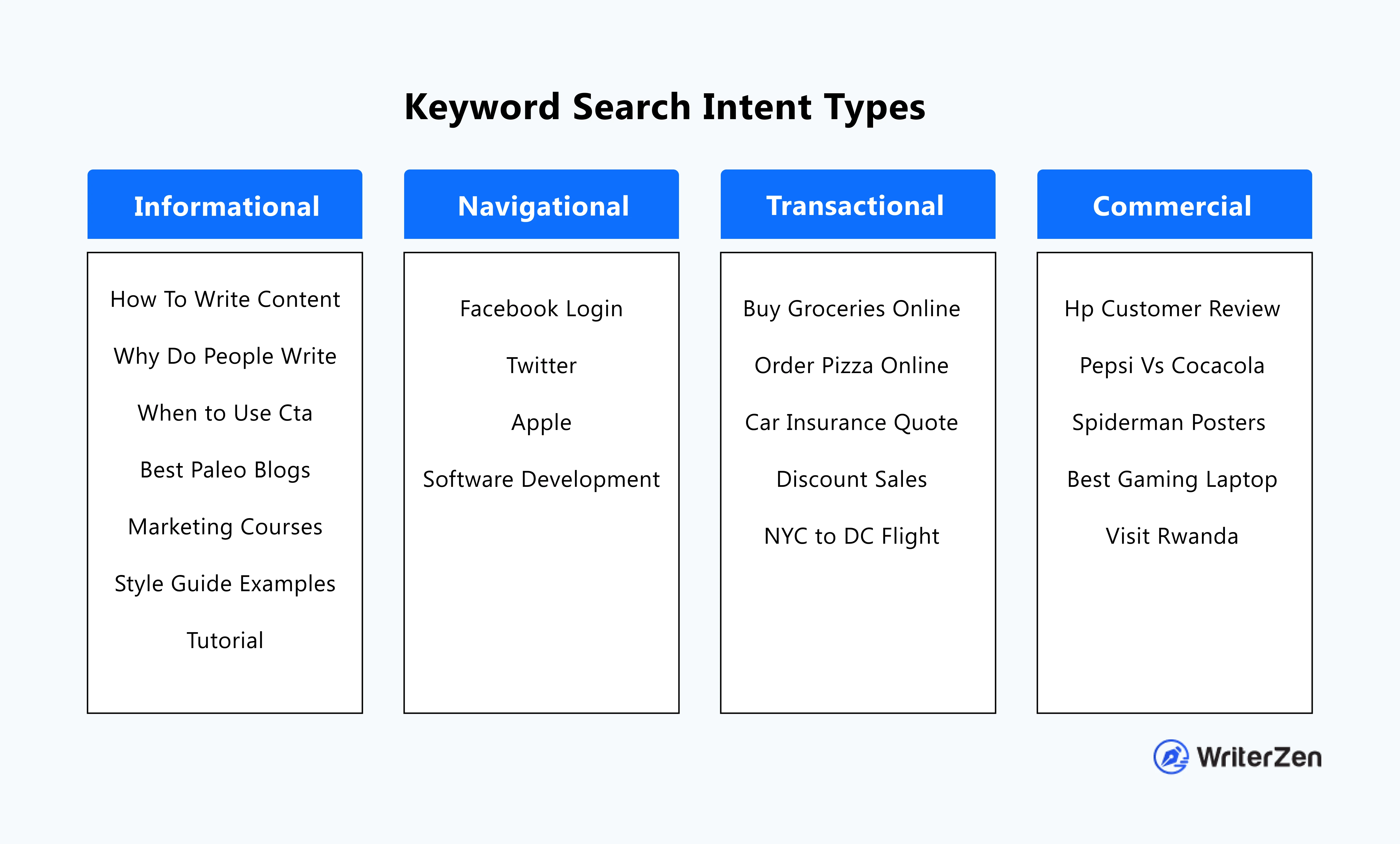
If your audience is looking for in-depth information, you might decide to write a longer article that's even more detailed than what your competitors offer. On the other hand, if people are searching for quick answers, a short and straightforward piece could be more helpful.
Giving your audience the information they need will help you make sure you're not just blindly following what the competition is doing; you're giving your audience exactly what they're looking for.
To help you deepen your understanding of search intent, WriterZen‘s Keyword Planner provides more nuanced insights besides basic keyword data.
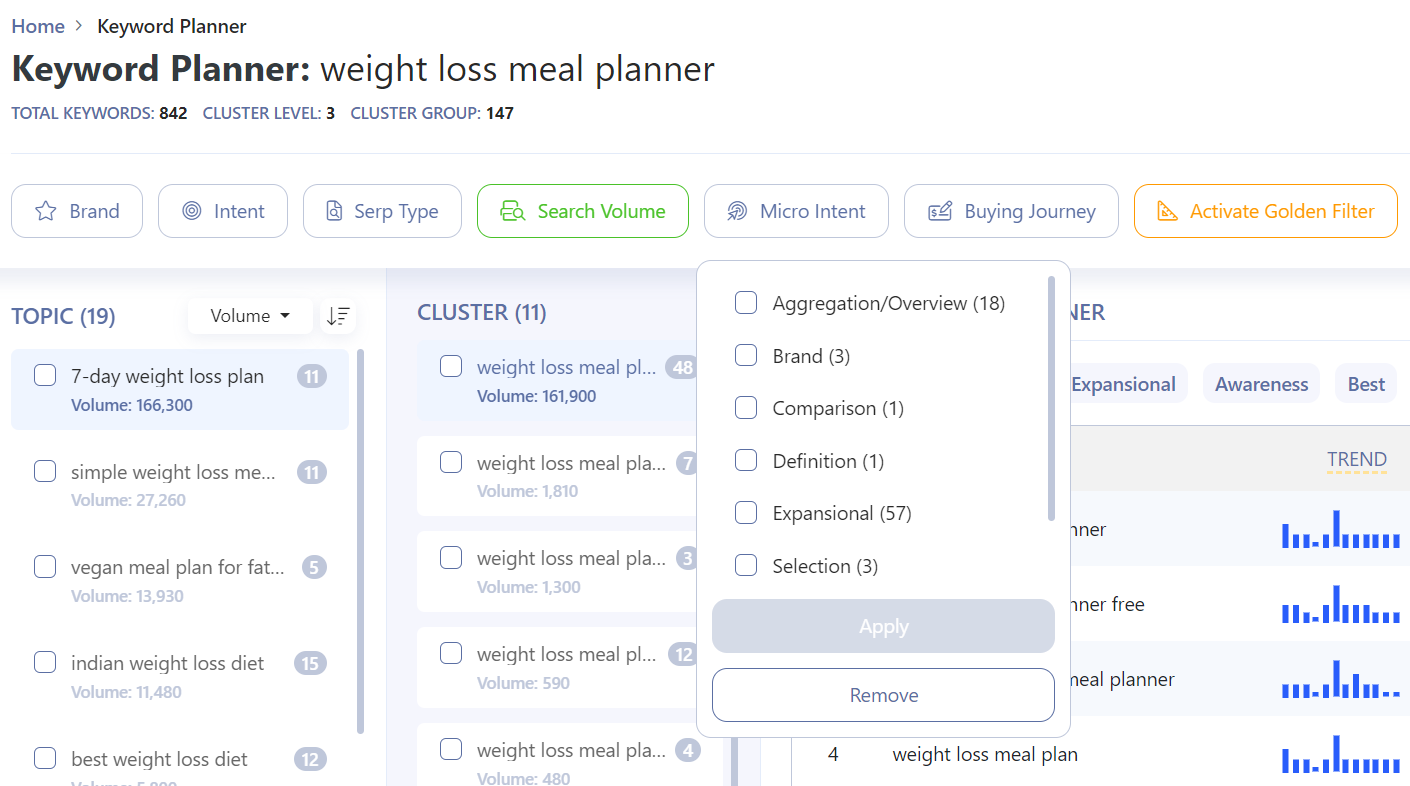
It provides insights into users’ intent behind the keywords and where to place the keywords in a buying journey.
Equipped with insights into specific buyer journeys, both broad and detailed intent, you can focus your efforts on keywords that are buzzing with high search demand.
Content Quality
The quality of your content is like the foundation of a house. It has to be strong and reliable. Ask yourself, is your writing top-notch? Does it offer something useful, new, or fun? Is it giving your readers information they didn't have before, or maybe even entertaining them? Basically, is it worth someone's time to read?
Now, let's shift gears and talk about the other side of the coin—how much you write, also known as quantity. Some experts say that the number of words in your content matters, especially for SEO.
Lachlan Perry, from SEO Kings, puts it like this: "Sure, the number of words is something to think about. More words can show you really know your stuff. But it's not the end-all-be-all."
So, if you're an authority on a subject, you should naturally have a lot to say about it. Your goal should be to give your readers a full, deep understanding of the topic.
To put it simply, the number of words is something to consider, but what really counts is how well you get your point across. It doesn't matter if it's 1,500 or 3,000 words, as long as you're making an impact.
Jeff Loldny of Loganix has his own take, too. He says, "The number of words I aim for depends on how tough the keyword is. For harder keywords, I will write more." Jeff shoots for at least 1,000 words most of the time, focusing on what are called “long-tail keywords.”
He advises using your main keyword carefully, spacing it out in the content so it doesn't feel forced or stuffed. Aim for a minimum of 1,000 words to fit your keyword in naturally three or more times.
So, whether you're counting words or not, the key takeaway is this: make your words count. Quality and quantity should both be on your radar, but delivering a strong, meaningful message should be your number one goal.
Content Readability
Making sure your content is easy to read is like laying out a welcome mat for your readers.
How is the layout? Can readers quickly scan through to get the main points? Have you used headings that break up the text and guide people through different sections?
The easier your content is to digest, the more people will get out of it.
But it's not just about making it look good; you also have to make sure it's complete. Are you giving readers all the information they need, or leaving them hanging with unanswered questions? A well-rounded piece is satisfying and doesn't leave people scratching their heads.
Now, what makes something easy to read?
Short sentences are your friend; they're like quick bites that are easy to digest. Long sentences are like tangled strings; they confuse and lose people. And just like road signs guide you when you're driving, cues in your content—like highlighted words or phrases—help readers navigate through your piece.
If all this sounds like marketing lingo, don't worry. If your content is straightforward and easy to skim through, your readers will get more value from it. They'll enjoy it more, and they won't feel like they're trudging through a swamp to get the information they want.
Relevancy
Even if you write amazing stuff, it won't get noticed if it doesn't match what people are looking for online.
Imagine you're hungry for a pizza recipe but end up on a page that talks mostly about the history of pizza. You'd probably leave, right? That's why it's important to make sure your content actually answers the questions people are asking.
Don't just add more words to a page, thinking it'll make it better—it won't. Instead, think about what people want to know and focus on that.
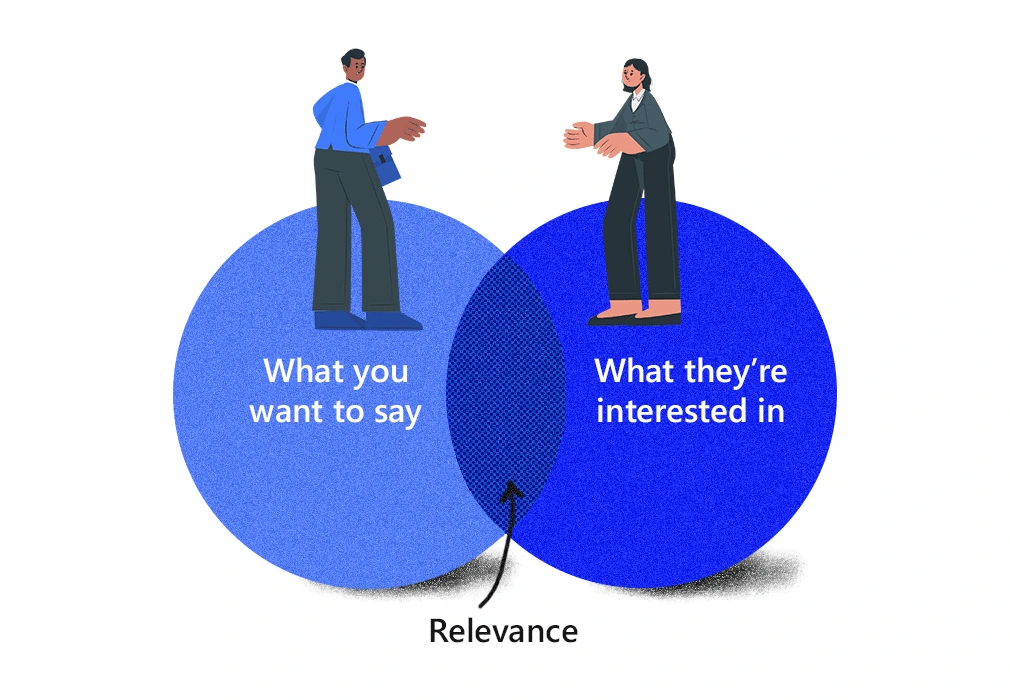
For instance, let's say you wrote a blog about building a dog house. If you start talking about all kinds of fancy dog mansions when readers just want to know how to build a basic one, you're missing the point. Stick to the main topic.
Or, maybe your blog does a great job of sticking to the subject, but then you go off on a tangent about how great your company is. That's not what people are there for. Get rid of those self-promotions to make your content better.
Lastly, let's say your blog is on-topic and relevant, but the headlines in it are confusing or vague. That makes it hard for people—and even search engines like Google—to understand what each section is about. By fixing those headlines, you'll make your blog easier to read and more likely to show up in search results.
Remember, the key is to make your content as helpful and relevant as possible to what people are actually looking for. That's your next step to making your content even better.
Time to Let Go of Word Count Fixation
Focusing too much on the number of words in your online articles or blog posts can actually backfire.
You might think that writing 200, 500, or even 1,000 more words will make your page climb to the top of search engine results, but that's not the case. The secret sauce isn't the word count—it's how useful and relevant your content is to the reader.
Instead of counting words, aim to make your content super relevant to what people are actually searching for. Give them the answers they need and solve their problems. The better the information, the more value they'll get from reading your article, and that's what really counts.
Also, don't forget to fine-tune your content so that search engines can easily find and understand it. This is called optimizing, and it helps your page stand a better chance of being seen by more people.
If you focus on making your content relevant, high-quality, and well-optimized, you won't have to worry about word count. Your content will naturally be just the right length for what you're trying to say and for the people you're trying to reach.


